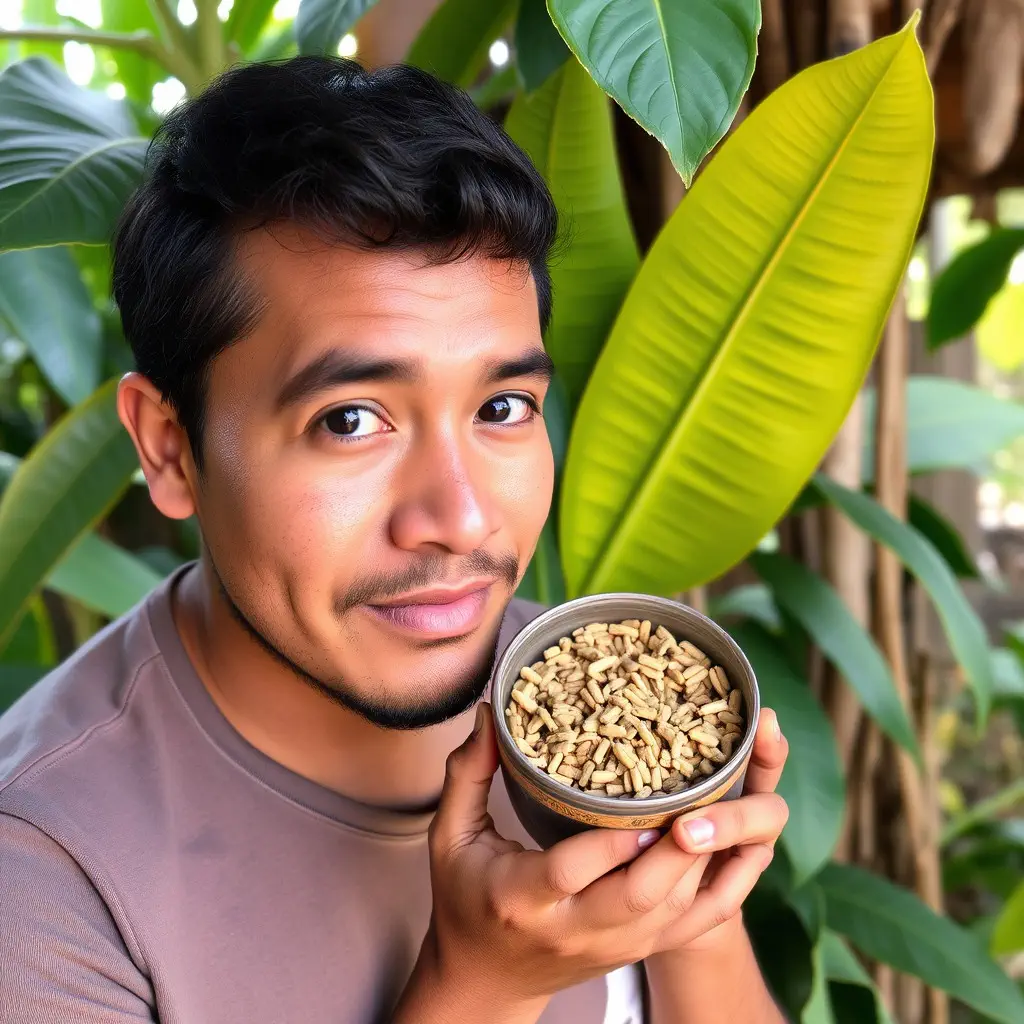Recent studies suggest that kratom's alkaloids, mitragynine and 7-hydroxymitragynine, may have anti-inflammatory properties by inhibiting pro-inflammatory cytokines. Parallel research indicates that barberry root tea, containing berberine, also has potent anti-inflammatory effects. The combination of these two natural remedies is being examined for its potential to help manage systemic inflammation, possibly enhancing the effects of conventional treatments and offering hope for chronic inflammatory conditions. Ongoing research seeks to clarify how these compounds work to understand their integration better into medical protocols. Barberry root tea, specifically, is known for its medicinal properties due to berberine, which, when paired with kratom's analgesic and anti-inflammatory effects, may provide a more holistic approach to inflammation management. It's essential to approach the use of these supplements with caution, considering individual sensitivity and potential interactions, and to always consult healthcare professionals beforehand to ensure safe and effective treatment. Regular monitoring of symptoms is recommended to personalize the use of these supplements according to one's health needs.
Exploring the potential of kratom supplements as a natural approach to inflammation reduction, this article delves into the medicinal properties of kratom and its synergistic effects when combined with barberry root tea. We will uncover how these natural remedies can offer relief from inflammatory conditions while emphasizing safe and effective usage for optimal health benefits. Join us as we navigate the intersection of herbal medicine and scientific evidence to understand the role of kratom in inflammation reduction.
- Unraveling the Role of Kratom in Inflammation Reduction
- The Synergistic Effects of Barberry Root Tea and Kratom for Inflammatory Relief
- Navigating the Safest and Most Effective Usage of Kratom Supplements for Inflammation Management
Unraveling the Role of Kratom in Inflammation Reduction

Studies have begun to uncover the potential role of kratom, specifically its alkaloid constituents such as mitragynine and 7-hydroxymitragynine, in modulating inflammatory responses within the body. Traditionally used for pain management and a range of other health benefits, kratom’s anti-inflammatory effects are gaining attention. For instance, kratom extracts have been observed to inhibit certain pro-inflammatory cytokines, which play a central role in initiating and perpetuating inflammation. This action is not unlike that of barberry root tea, another natural remedy known for its anti-inflammatory properties due to its alkaloid berberine content. Both kratom and barberry root tea may provide complementary support in managing systemic inflammation, potentially offering relief for conditions where chronic inflammation is a concern. Research continues to delve into the mechanisms behind these effects, with the aim of understanding how kratom can be effectively utilized as a supplementary approach alongside conventional treatments for inflammatory conditions.
The Synergistic Effects of Barberry Root Tea and Kratom for Inflammatory Relief

Consuming Barberry Root Tea in conjunction with kratom supplements may offer a synergistic effect for inflammatory relief due to their shared anti-inflammatory properties. Barberry Root Tea, derived from the berberis vulgaris plant, has been traditionally used for its medicinal properties, including antimicrobial and anti-inflammatory effects. Berberine, a major alkaloid found in barberry root, is known to modulate inflammation by inhibiting pro-inflammatory cytokines and enzymes. When combined with kratom, which contains compounds such as 7-hydroxymitragynine and mitragynine, both of which have been reported to exhibit anti-inflammatory and analgesic effects, the potential for reduced inflammation is amplified. This combination may act at various levels within the body’s immune response, offering a holistic approach to managing inflammation.
Furthermore, the complementary mechanisms of action between barberry root tea and kratom can lead to enhanced therapeutic outcomes. The polyphenolic compounds in barberry root work synergistically with the alkaloids present in kratom leaves. This dual-action approach targets both the root cause of inflammation and its symptoms, providing a comprehensive solution that could be more effective than using each substance alone. Users should be mindful of the appropriate dosage and potential interactions when combining these substances, as individual responses may vary, and it is always recommended to consult with a healthcare professional before starting any new supplement regimen for inflammatory conditions.
Navigating the Safest and Most Effective Usage of Kratom Supplements for Inflammation Management

When considering the use of kratom supplements for inflammation reduction, it’s crucial to approach this therapeutically and with an understanding of dosage and safety parameters. Kratom, derived from the leaves of Mitragyna speciosa, has been traditionally used in South East Asian cultures for its potential health benefits, including pain relief and anti-inflammatory properties. For those looking to incorporate kratom into their wellness routine for inflammation management, it’s essential to start with a low dose to gauge individual sensitivity. Barberry root tea, rich in alkaloids similar to those found in kratom, can serve as a complementary natural remedy; its berberine content is known for its anti-inflammatory and antioxidant effects. Combining both kratom and barberry root tea may offer a synergistic effect for reducing inflammation while minimizing potential side effects. However, one must exercise caution, as the combination of supplements can be potent and individual responses can vary significantly. Consulting with a healthcare provider is always recommended before integrating any new supplement into your health regimen to ensure it aligns with your overall health picture and does not interfere with other medications or conditions. Additionally, adhering to recommended guidelines for each supplement can help in maximizing their benefits while minimizing risks associated with their use. Regular monitoring of symptoms and effects is also key to determining the most effective usage for your specific needs.
In conclusion, the therapeutic potential of kratom in reducing inflammation has been thoroughly explored, highlighting its synergistic benefits when combined with barberry root tea. The mechanisms underlying this anti-inflammatory effect are multifaceted and present an intriguing area for further research. While it is clear that careful consideration must be taken to ensure safe and effective usage of kratom supplements, the current evidence suggests that they can be a valuable addition to an individual’s health regimen, particularly when seeking natural relief from inflammation. Prospective studies are encouraged to elucidate the full scope of kratom’s anti-inflammatory properties and its optimal use in conjunction with barberry root tea.






